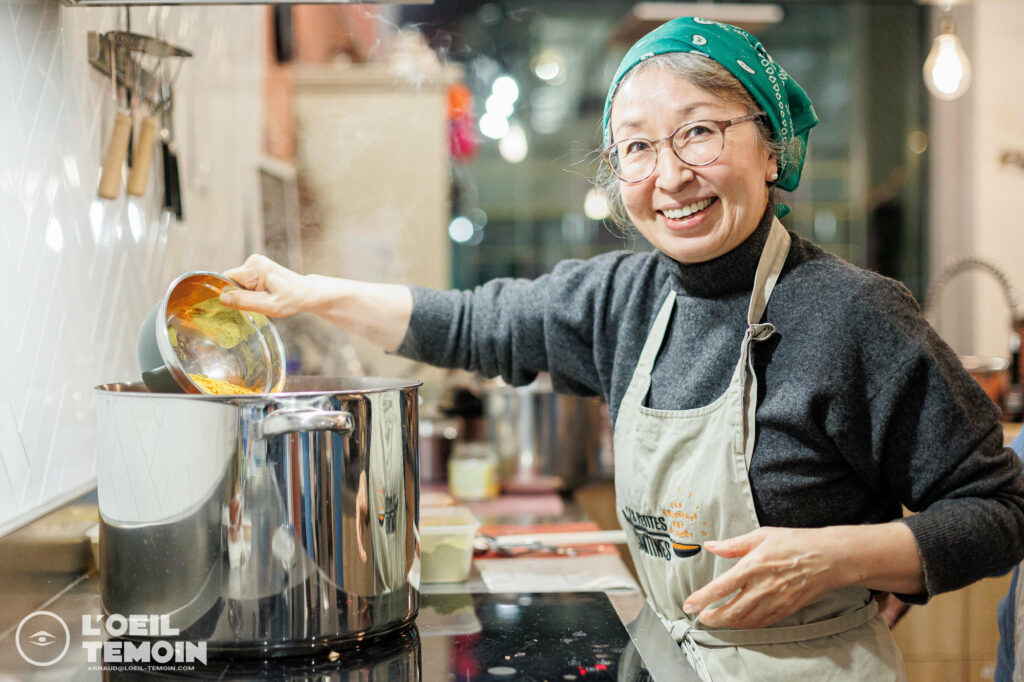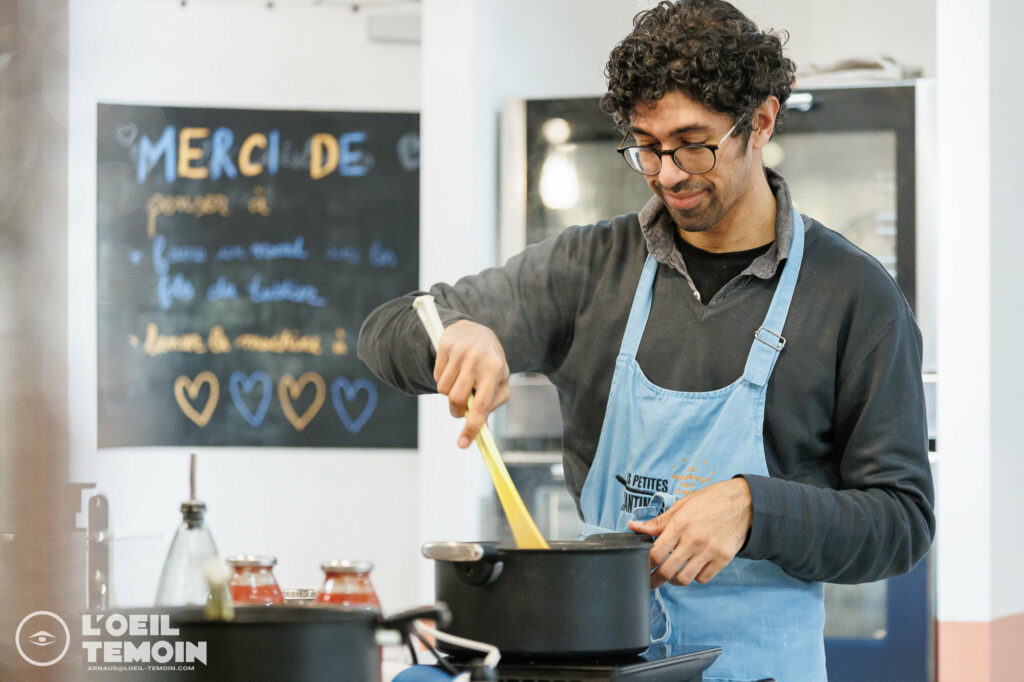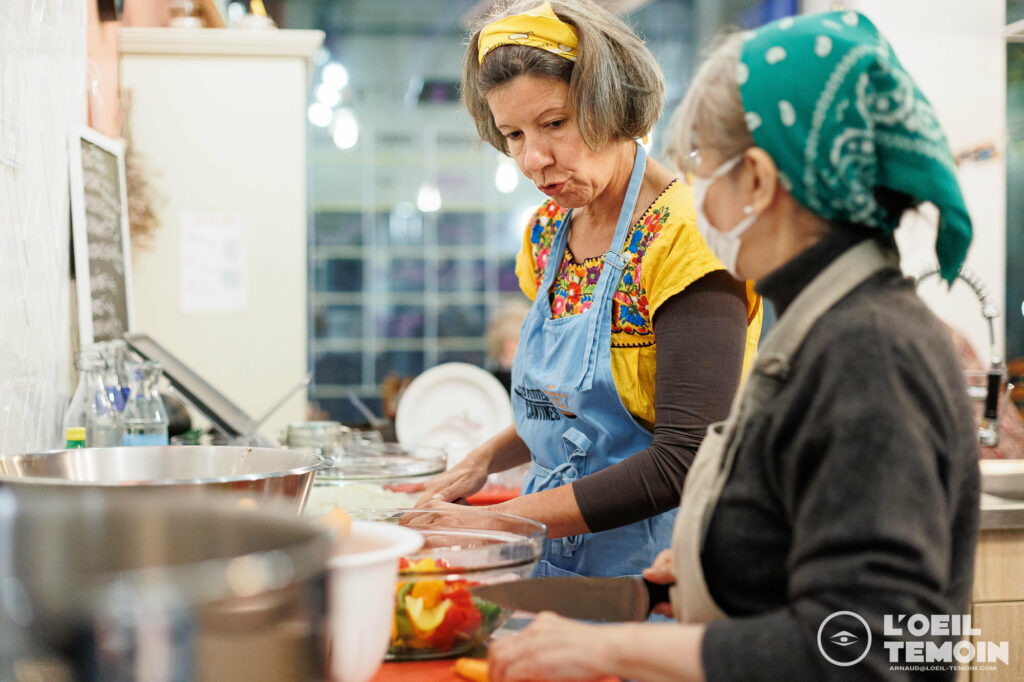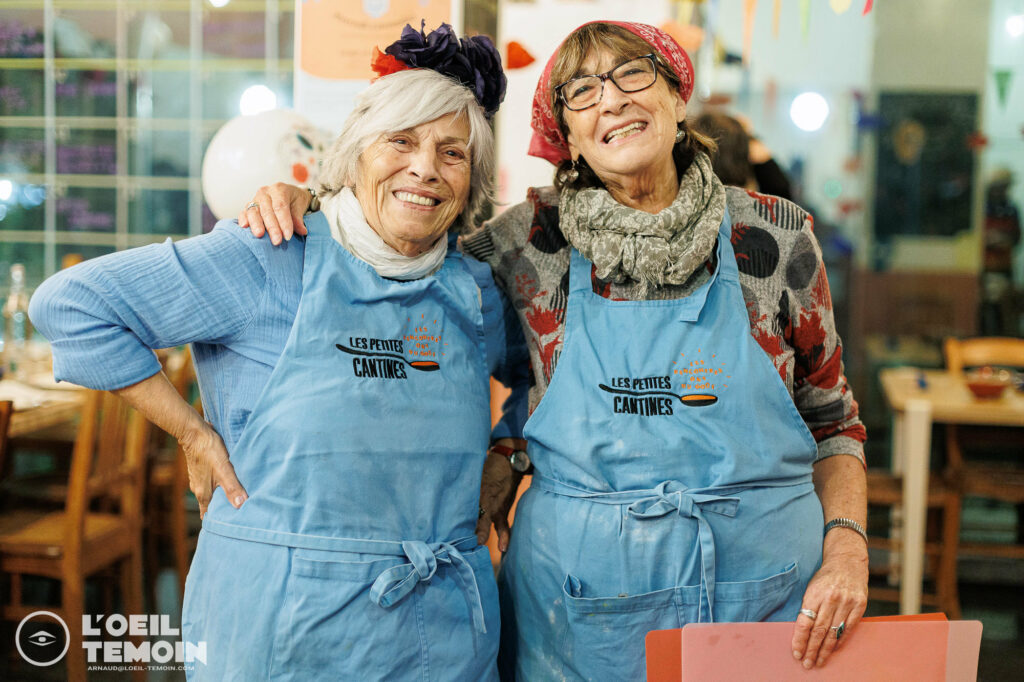Les Petites Cantines is a network of not-for-profit neighbourhood canteens where people can come together to enjoy sustainable meals (organic and locally sourced), with a participatory approach (cooking, washing up, entertainment) and free prices. Opening in November 2021 in the 13th arrondissement of Paris, Les Petites Cantines Paris, supported by Almayuda, aims to build quality relationships and contribute to the construction of a society based on trust.
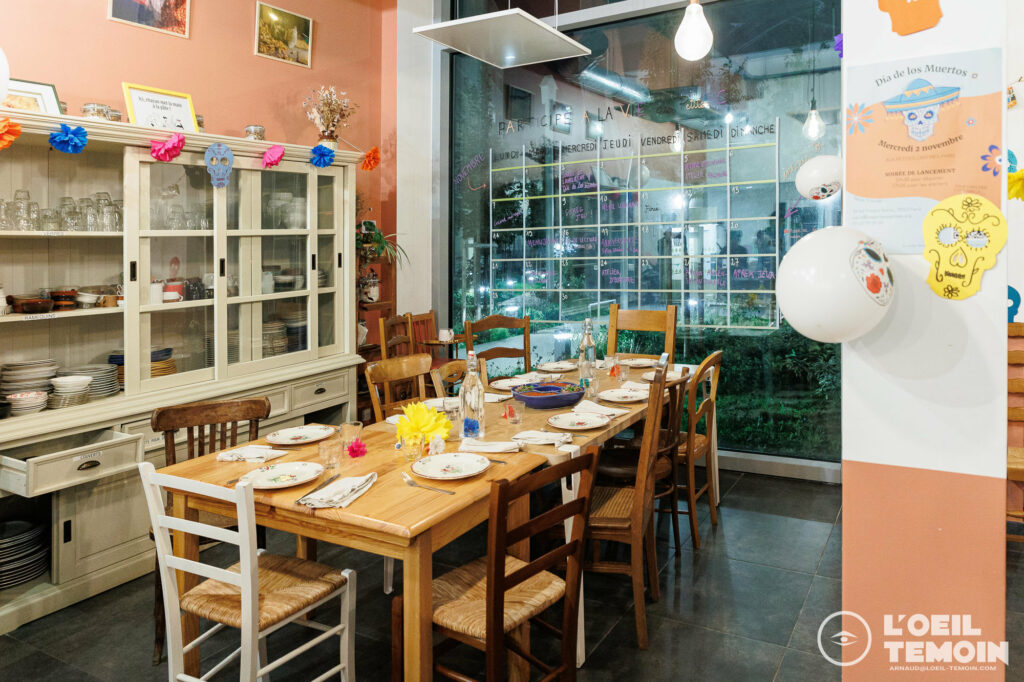
The idea was born after a tragedy, as recounted by Diane Dupré la Tour, who founded the first “Petites Cantines” with Étienne Thouvenot in Lyon’s 9th arrondissement in September 2016. “In 2013, I lost my partner in a car accident. At the time, there was a spontaneous outpouring of solidarity from the people in my neighbourhood, my neighbours, including those I didn’t know, which helped me to bounce back and not withdraw into myself. And I said to myself, you don’t have to wait for an accident in life to experience ÇA!
“ÇA” is a subtle combination of encounters, social ties and a sense of belonging to a neighbourhood. And what better way to achieve this than by preparing and sharing a meal together?
To achieve this, we needed to ensure that “people who come across each other in the neighbourhood, without necessarily having any excuse to talk to each other, can have a place to meet.
Three principles
This place will be Les Petites Cantines, and the project will be based on three main principles:
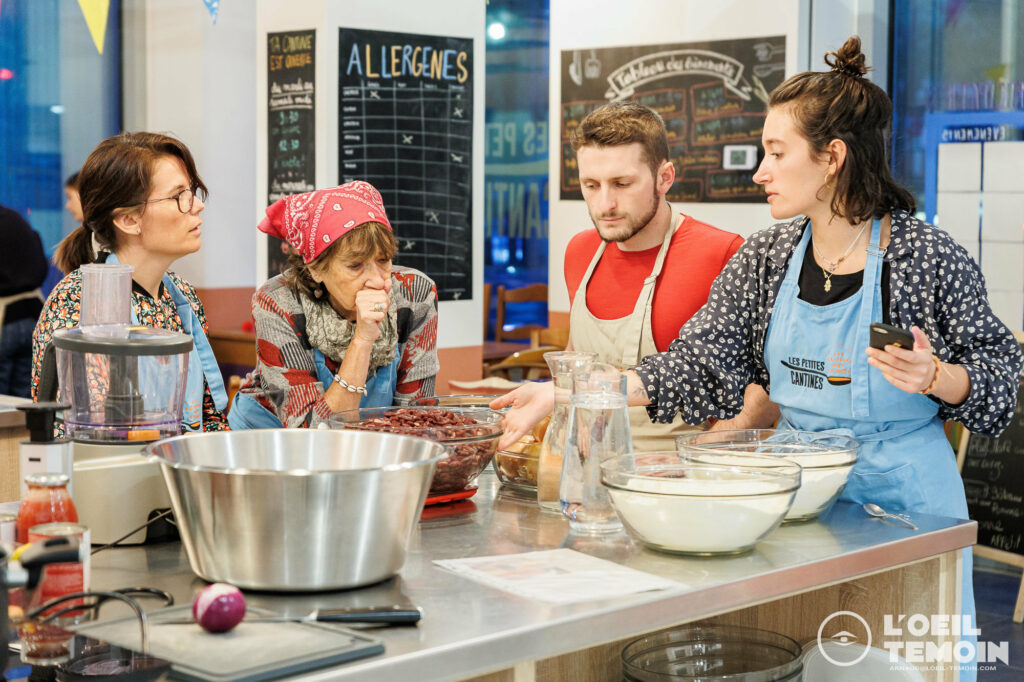
– Principle n°1 : the price of a meal and membership of the association are free. Everyone gives what they want and what they can. However, each small canteen aims to balance its books. All guests are therefore discreetly informed of the cost of the meal, either on a blackboard or on a notice board.
– Principle n°2 : everyone pitches in! Cooking, washing up, cleaning, proposing activities and creative workshops, all forms of participation are welcome. Online registration modules, a bit of common sense and a lot of good humour can help you get organised.
– Principle n°3 : the Petites Cantines plate favours “home-made”, seasonal products, short circuits, organic produce and unsold food. This is undoubtedly why the food is so good, and even very good!
After Lyon, Paris
Having spread out from its base in the Auvergne Rhône-Alpes region, Les Petites Cantines is now expanding further afield, with numerous projects in the four corners of France. In Paris, the anchor point is the 13th arrondissement, at 94 Boulevard Vincent Auriol, almost opposite the Salpêtrière hospital.

« We opened in November 2021, with a community that had been mobilised since 2020 but prevented by the COVID 19 epidemic. By the end of 2023, we had more than 2,200 members of the association that runs our canteen, 30 active volunteers, two full-time employees, civic service volunteers, partners who support us and come to organise events… »
The man speaking, Sébastien Kfoury, is already an “old hand” at social and community entrepreneurship. After studying international management at Paris Dauphine, where he replicated a project to integrate refugees (eachOne), he now runs La Cloche, an association that fights the exclusion of homeless people. He is also spokesman and director of Nightline France, which aims to improve the mental health of students and young people.
Bien structuré et reconnu
It was through Ashoka France (1) that Sébastien met Diane Dupré la Tour, founder of Les Petites Cantines, and decided to embark on the adventure, opening his first establishment in Paris. After a while, he came to a lucid conclusion about the operation of his canteen in the thirteenth arrondissement.
« It’s running smoothly and is well structured! We’re recognised as one of the key players in the accessibility field, complementing existing schemes. But we ended the last financial year with a €30,000 deficit, partly because of the rising cost of materials! That’s got us thinking about the consequences of our business model, which is based on free pricing. »
Think about it, but without calling it into question! The project needs to “give itself the means to stay afloat”, while responding to the challenges of the neighbourhood. “Our audience is still very female, with a lot of 26-39 year olds and older people. The challenge is to attract more men and attract young people and students from nearby universities. Our mission is to enable people on the margins of society to have access to decent, complete, organic and tasty meals… And to create social links and confidence through this type of food.
Free but conscious participation!
But how can we further improve the social impact and quality of meals for underprivileged, and therefore low-income, groups, while at the same time guaranteeing the free price model? There’s no single answer to this question, which calls on the collective intelligence of the team at Paris’s first Petite Cantine.
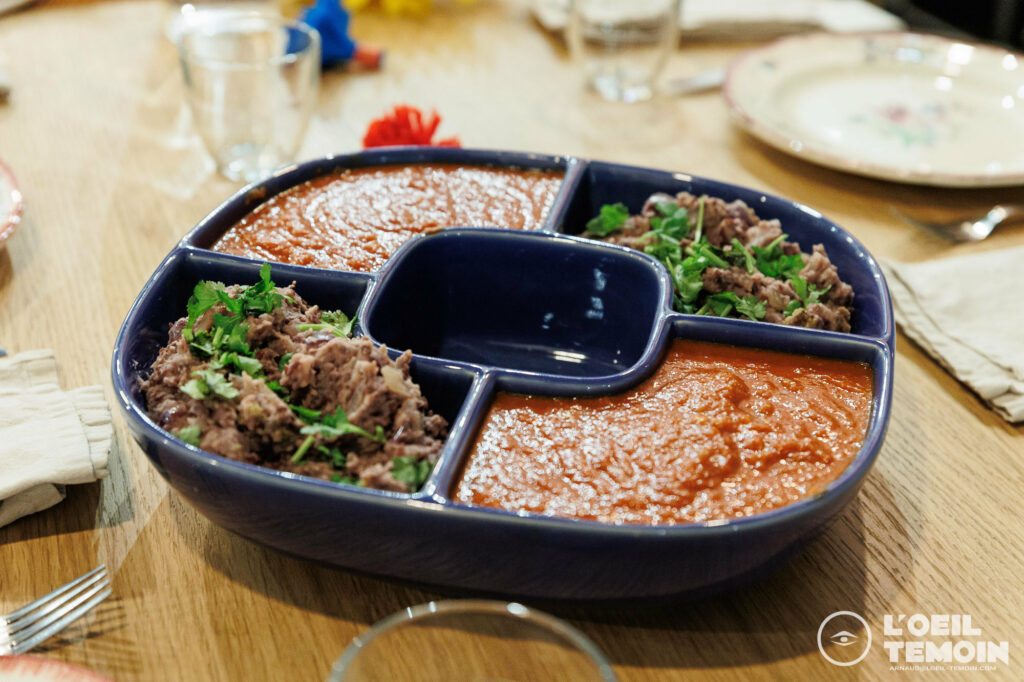
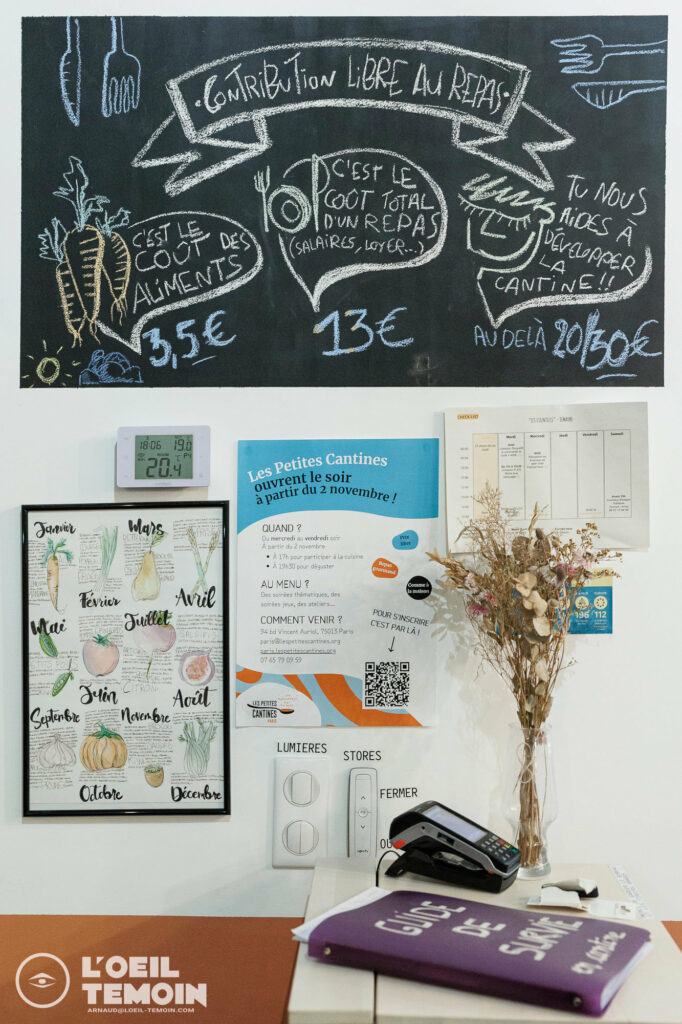
« We talk about free and conscious participation, rather than free pricing”, explains Sébastien. “As in all the other Petite Cantines, the real cost of the meal, including charges and salaries, is displayed. So all the diners know what it’s worth and act accordingly, according to their means. »
Price education is essential, but it’s not enough. “We served more than 6,000 meals in 2023 and we know that newcomers contribute more than the cost price. So we have to keep attracting new people. Better planning, increasing and smoothing out attendance is also one of our objectives if we are to reconcile our social impact with our economic model… “
Looking elsewhere for the other 50%!
“The free-price model accounts for 50% of our income,” says Sébastien. It’s a way of reminding us that we need to look elsewhere for the other 50%. Privatisation with companies adds another 30% to sales. The balance comes from sponsorship and grants.
“We didn’t want too much outside support at the outset, so as not to depend on it and risk suffocating if a major contributor withdrew. The idea is still to avoid a subsidised model and to generate more income, in particular to show that it is possible to have models that serve a social objective and are economically sustainable: we’re proving the concept! But we have to face reality. We can’t be at the mercy of an oven breaking down, or an employee leaving because we can’t pay them enough… It’s too much stress and too much risk!.”
By committing itself to Les Petites Cantines, Almayuda is helping to guarantee the long-term future of a project that everyone agrees, beyond the world of social entrepreneurship, has proved its worth!
(1) Ashoka France: NGO working in the field of social entrepreneurship.
Photos : Arnaud Caillou – L’œil Témoin
Useful links :
https://www.lespetitescantines.org/
https://www.instagram.com/reel/C3qIEatIpJg/?igsh=MTA5bnplbWY0dDZlag==


